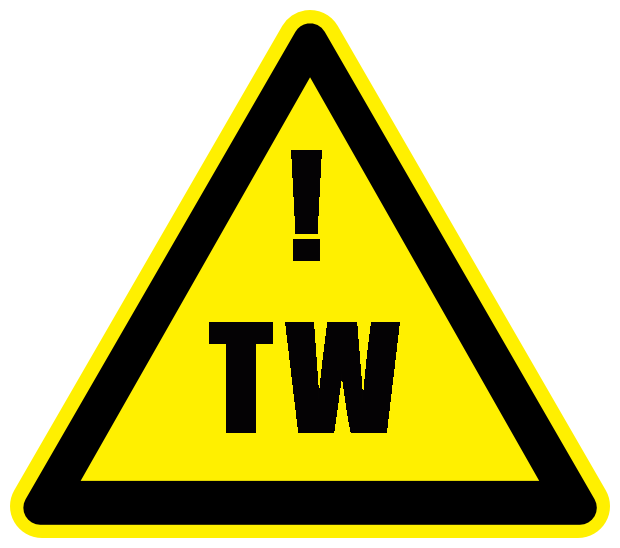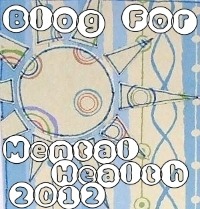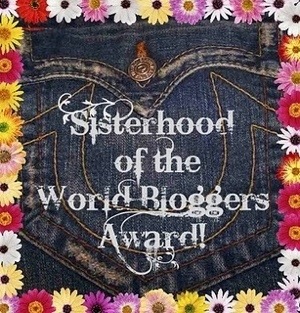“I have been able to identify a behaviour pattern throughout my life of “seeking” mother figures of whom I could emotionally connect with. The pattern goes as follows: 1) I meet someone who I perceive to be a “mother figure” (traditionally the right age and disposition) 2) I strike up a close friendship with them 3) I begin to rely on them heavily for emotional support – I tell them my history, I confide in them, in the later years I asked for help from them like bandaging after self harming incidents 4) I feel as though I totally “love” them as my own mother 5) Something happens to completely destroy the relationship 6) The cycle starts again.”
After everything I have been through in my life, I feel as though I need to understand why I chose to follow that particular path. Whether or not I need to find out to apportion blame, or just to gain closure, I have been thinking a lot about why I made the life choices that I did.
My parents currently accept no responsibility whatsoever for my life choices and although I do think there comes a point when you have to be held accountable for your own actions, there must be some element of “nature vs. nurture” involved in my situation.
My parents tend to assume that they know “me” and make no bones in telling me they know my “true intentions” in any given situation. They are very opinionated people and sadly feel it is their right to give me those opinions, without much thought on how they might make me feel.
Let me give you a few examples:
Me: I’m going to go into work a few hours early tomorrow, I have a job I need to finish.
Dad: You are actually going to because you are being greedy and want more money.
Me: No, I want to finish this job so the client is happy.
Dad: I know you! I know what you are like! It’s because you are skint and want more money!
Here in this example, he is being very invalidating and actually very arrogant by assuming he knows me better than I know myself. This makes me feel angry and resentful towards him. I was genuinely going in to work early because I wanted to do a good job, and doing a good job would make me feel confident and good about myself. He is taking those genuine aspirations, and tainting them with the negative view of me that he seems to have. Previously I would become angry, and try to fight to protect myself, by telling him he was wrong, but I have learnt (sadly) that the best course of action is to try to brush it off with a “if you say so” attitude. I try to tell myself that the most important thing is that I know why I am doing things, although mostly I just feel sad that he can’t see the good in me and my choices.
My daughter is now nearly 10 months old and throughout my journey into parenthood I have seen over and over again the importance of having a stable, emotionally supportive and consistent mother figure in your life. Even now, I can see the impact I could potentially have on my daughters emotional well being and it not only overwhelms me, but makes it so clear in my mind how I came to follow the life path that I did.
Please don’t get me wrong, and I will say this over and over again – I am grateful for my parents. They brought me into this world, they gave me a home, a decent childhood and a good education. Sadly for me, I needed more than “things” to become a properly functioning adult. I needed emotional stability and support, neither of which I believe I received, simply because my parents did not know how to give it. Perhaps their own parents fell short and then the cycle repeated, perhaps it is just their individual personalities – either way I am grateful for the opportunity and ability to identify this before it was too late and the cycle repeated with my own daughter.
Let me give you another example:
I was about nine years old, and I ran away from home, hiding in a narrow alleyway close to my house. I can’t remember exactly how long I was there but it was likely to only be a few hours. I ran away because I had been arguing with my mother and I distinctly remember her calling me a few names that really upset me. I climbed out of my bedroom window and ran around to my neighbours house, who I regularly visited. It must have been December as she gave me a present (either my birthday or christmas!) to take home with me, and I remember it being a small perfume set with several different perfumes in. Instead of going home, I went and hid in the end of an alleyway that was about 100 yards from my house.
It must have been a few hours later that I heard people calling my name, but I stayed hidden. It got dark, and I then got very cold and very hungry, so decided to start banging on the wall (I guess to be found?). Eventually someone found me and took me home.
Now just a little note: I ran away because I was genuinely upset. I wasn’t trying to “prove a point” or “teach a lesson”. I was an emotionally vulnerable child who I feel had been pushed too far, and I wanted to get away and never come back. I didn’t feel loved, in fact I probably thought my mother hated me.
When I got back home, I can remember a few things that were said to me:
“I hope you are pleased with yourself, we had to call the police!”
“This was all for attention!”
And best of all… a punishment…. “Well you can think again about the school skiing trip (the following week)… You aren’t going!”
As hard as I try to remember, I cannot think at any point that either of my parents asked me if I was okay, or why I did it. My cry for help went unheard again. It was only my sister (half -sister on my dads side) who sat in my room with me and asked me why I had run away. If my memory serves me correctly, I told her it was because I thought my mum hated me.
I think I went on the skiing trip… after everything was brushed under the carpet. Little did I know what path my life would take in the following years and how I wish now that I had got the help that I so desperately needed.
There are a few lessons that I have taken from my life experiences that I will be applying to my own children. Of course, I don’t want to become a permissive parent but I strongly believe that the mainstream approach of threats and punishment to disciplining children just does not work for a lot of children. My worst nightmare would be my own children following in my own footsteps with mental illness and if my own approach to parenting can help protect them from that – brilliant. If I get it wrong and they become “spoilt brats” (as I have been told they will) – so be it. That is a preferable choice to me that the life that I have had.
Lesson One: Everyone has a basic need for a mother figure
Of course, my own mother has been there all of my life. She gave birth to me, she nurtured me and she raised me. I am forever grateful for that and I love her a lot. However, I do believe she was what I would call “emotionally absent”. If I fell over and grazed my knee, she would pick me up and stick a plaster on it and tell me to stop crying. Unfortunately you cannot do that with emotions, and I believe that is what she tried to do. I feel as though our relationship and connection has been lacking from the very beginning – although I am not sure of the reason for that. I know she breastfed me for four months, and then I went to a child minder full time at that point – this does make me wonder whether that vital attachment forming time was damaging through leaving her so early. I know how I felt when my own daughter was four months old and nothing on this earth would have dragged me back to work at that point – so perhaps that was a contributory factor.
I have been able to identify a behaviour pattern throughout my life of “seeking” mother figures of whom I could emotionally connect with. The pattern goes as follows:
1) I meet someone who I perceive to be a “mother figure” (traditionally the right age and disposition)
2) I strike up a close friendship with them
3) I begin to rely on them heavily for emotional support – I tell them my history, I confide in them, in the later years I asked for help from them in terms of post self harming incidents
4) I feel as though I totally “love” them as my own mother
5) Something happens to completely destroy the relationship
6) The cycle starts again
Thinking about it, I can remember a number of “women” that this pattern has happened with (I won’t name them specifically for privacy reasons):
Teachers and school matrons at primary school
Teachers at secondary school
Friends parents
Older female friends
One in particular I became closer to than any before and even bought her a necklace inscribed with the word “mum” (I did feel a pang of guilt for buying it for her rather than my actual mum). It did seem to be women who were older, and perhaps needy themselves so perhaps they were looking for someone to “mother”.
Either way, I do feel that my lifelong search for a “mother figure” jumping from person to person was a direct result of my own mother not providing me with the mother figure that I needed to form a secure attachment with. Obviously this pattern of idolising and putting on a pedestal and then demonising is characteristic of borderline personality however I can’t help feeling that it is not totally a “borderline thing”.
Click here to read an interesting article about attachment theory.
Lesson two: validation is so important
I know I have mentioned the term validation quite a bit in my recent blog posts but I believe the importance of validation in a persons life (particularly a child from their parents) cannot be understated as growing up in an invalidating environment has been proven to be a contributory factor to the onset of borderline.
Just for reference – click here to read about what an “invalidating environment” actually is.
I believe both of my parents are very invalidating. Invalidation can be very subtle, or it can smack you right in the face. Let me give you an example which happened only a few days ago:
We were discussing the fact that I had told my parents I would not be using “smacking” as a discipline method for my daughter.
Dad: Well, I never hit you when you were younger
Me: Yes you did! (He actually did. I wasn’t abused but I can vividly remember several occasions).
Dad: When?
Me: *Describes incident*
Dad: Don’t be ridiculous. That never happened. You are making me out to be a terrible father! Why do you just remember all the bad things? Why can’t you remember all the good things I did for you! (And proceeds to list them).
Me: You were asking me to recall when you hit me, so I did. If you had asked me to recall all the good things I would have done. (Using the DBT skill DEARMAN – Describe)
Dad: I bet you told all those therapists that I was a bad father and hit you to try and make them feel sorry for you.
As you might imagine, I ended the conversation at this point. I had clearly touched a nerve and he was becoming offensive (offence as the best for of defence as they say!). This is an example of “smack you right in the face” invalidation – he is completely denying that an event has taken place. Whether or not he means to is another matter, but if I was less sure of my own mind I might start to question my own memory (and sanity). (This concept is actually known as gaslighting, just for info, when someone makes you question your own memory deliberately to confuse you).
My parents refusal to accept any part of my mental illness is also a big “smack in the face” load of invalidation. I know the way they treated me affected me so deeply that I followed a certain path in life. For them to step back now and say “Well actually we had no part in that, that was all your choices and therefore all your fault” is actually pretty damn shitty as well as invalidating. (Ironic, right!).
I have also now been observing much more of their “subtle” invalidating, no just with me but everyone I see them interact with. Sadly it is not just my parents, I am starting to see it all day every day and it feels like such a big challenge to avoid providing subtle invalidation to my own children – but I have made a promise to them to try. Subtle invalidation happens through the words we choose and simple actions we take. Obviously sometimes I know I can think about things too much but I do feel that avoiding invalidation is a really important thing for me to try to achieve.
Here are a few examples of subtle invalidation and how to avoid it;
“There’s no reason to cry/no reason to be upset”
You could say: “I can see you are upset/ you must be really upset”
“You can’t be/aren’t hungry/thirsty/cold/tired”
You could say “Are you hungry/thirsty/cold/tired?”
It is really important to me that my children (or just my daughter if I don’t have any more) feel their thoughts and feelings are always validated, as even though I am much older my parents are STILL invalidating me whenever they seem to have the opportunity (and that HURTS.) If I struggle to cope with it now, I can only imagine the damage it did to my emotional well being when I was a vulnerable child/teenager. Sadly, I don’t need to imagine and the evidence is shown in the years that followed – suicide attempts, self harm, hospitalisations. Like I said, it isn’t totally their fault, but I do believe they had a large impact and I wish they would stop their invalidation and at least hold themselves partly accountable.
Lesson three: just be there
Demonstrated by my almost 20 year hunt for what appears to be a “replacement mother figure”, the need for a secure attachment to a primary carer as a child has become a vital part of what parenting is all about for me. To the best of my ability, I will just “be there”. “Stuff” isn’t important, but being there is, and I will do everything in my power to make sure I am. Yes, I went through hell, but at least some good is coming from it. It showed me what I needed to do to hopefully stop the cycle and gave me the ability to hopefully raise a stable, healthy and well rounded child and for that I will always be grateful.
















Im so grateful that I started following your blog. In my case, my mother died when I was turning 9. Our relationship was strange. I lived between her and grandparents so I never really had that bonding in the beginning of my life, bo breast feeding etc. Thankfully, I’ve had great grandparents that I can you t on as parents, however, the generation gap has meant that they are very hard. They invalidate all of the time and due to their own life issues, they didn’t really have the time to help me as a child… We’re warriors, and we need to realise that we can do this alone. We rely on our attachment so much so we need to develop harder exteriors to deal with the world alone, because in the end we really only have ourselves. Sad, but true.
I’m glad you can get something from my blog. Your upbringing sounds completely stereotypical of a “borderline background”. You had no secure attachment and no validation, therefore your personality developed a certain way just so you could survive – and that is characteristic of “borderline personality”. I can guess at what your symptoms are. I totally feel you. xx
I really relate to your words about seeking mother figures. I have followed a very similar pattern to this through my life and have found it very confusing at times. Did you realise at the time that this is what was happening? Have you ever got it confused with sexuality? And did you ever have similar relationships with men? I am just trying to start a blog but struggling a bit to get started.
Hi there, at the time I didn’t realise it was happening. I knew I wanted each person at the time to be a “mother” to me but it wasn’t until later in my life I realised the pattern and the reasons behind it.
My sexuality – yes, in a big way. When I was 21 I met a woman (I refer to her on the blog as Jean). Long story short, we ended up in a lesbian relationship. She was 17 years older than me, married (dysfunctionally) with 2 children. Fast forward two years and I realised I wasn’t actually gay, and I was caught in a nightmare situation which then somersaulted me into a massive mental breakdown.
I never had a similar “father figure” relationship with any men, but I did have innapropriate relationships with them – but I think that was caused by other issues within my BPD. X
Thank-you for your reply. I have noticed a pattern afterwards too of intense relationships mainly with women, a couple with men. I think looking for a parental role. Some I have known at the time were looking for a motherly figure, others I felt attraction too as well. It all gets kind of jumbled then as to what/how I felt about these people and continues now with current people in my life. It cause me to question sexuality as well. Does that make sense?
Yeah. For many years I thought I was gay/bi. Now I am settled in a relationship with a man so I figure I’ve sorted myself.
Can I ask how old you are? X
I am 36. How about you? x
27 x
Wow, I can relate to this so much. I’m definitely not ready to write about this publicly yet…hats off to you for being able to do so. I’ve definitely done the obsessional thing with older women, and find it utterly shameful and embarrassing in myself. Ughhhhhh.
Thank you so much for reaching out to me. It’s good to know there are others out there who have been through the same thing. I hope in time you are able to share your experiences more fully. xx
I am so glad I found your blog… this is very similar to my story. My father was abusive and my mother knew about it and let it happen. Once I learned that he was being abusive, I attached very strongly to the women who protected me through it. I then added a nurse at a hospital I stayed in. I like to think that I have been a good addition to their life (one in particular has told me I’m like daughter to her) but I am terrified that one day I’ll do or say the wrong thing and they’ll leave. I figure if they were family they would be “forced” to love me. I feel like I’m walking on eggshells. Do you have any advice for these feelings?
Much Love
Hi Emily!
Thanks for reaching out to me. I totally understand and empathise with how you feel. It’s so hard feeling vulnerable when you aren’t a ‘biological’ relation of them but you actually strive towards becoming a daughter or similar to them.
The only advice I can give you is that family doesn’t mean everthing. Remember, there are some families with long lost children due to family arguments etc.
Just keep being yourself, and being honest about your feelings towArds your ‘mother figures’.
A word of warning though, and something I have realised as I have got older and overcome by need to search these people out: quite often this thing is a two way thing, and they need you as much as you need them. When I look back, the majority of women I attached myself to were those who had their own mental health issues, and accepted by presence initially as they had a ‘need’ to fill too. This inevitably creates an unhealthy relationship…. which often doesn’t end well. I always blamed it on my borderline but on reflection perhaps it wasn’t entirely my fault after all.
Take care xx